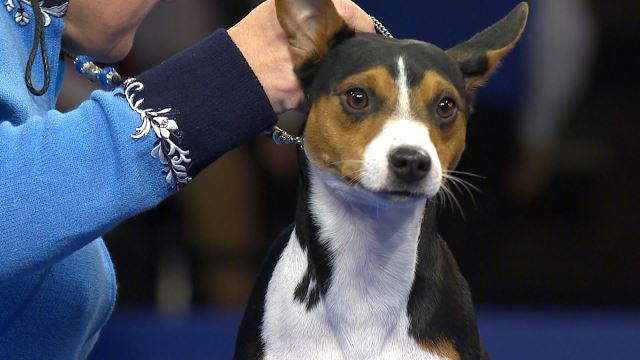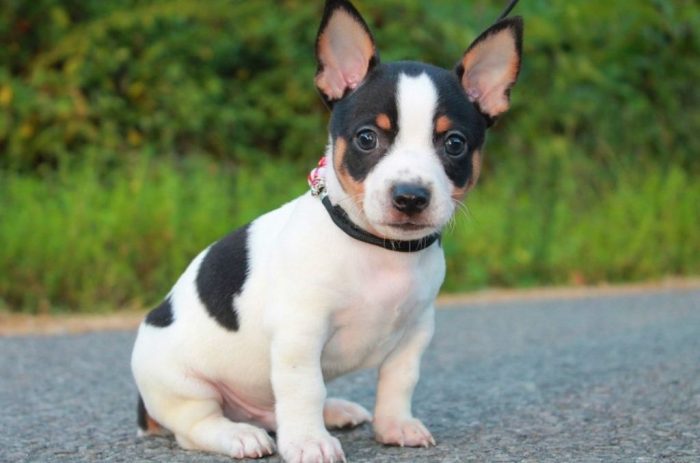The Rat Terrier tries to live up to its name in every sense of it. Even though they were originally bred to hunt down rats, prey, and other pests on the farm, their role has since grown beyond this as they have become domesticated, enjoying family time. Apparently, humans have found better ways to fight rodents around the house. Rat Terriers are compactly built and come in miniature and standard sizes. They are friendly and lovable. They also make very good therapy dogs due to their level of intelligence.
Table of Contents
Origin Of The Breed
This energetic dog came into existence with various breeds of terriers like the Bull Terrier, Old English White Terrier, Fox Terrier, and Manchester Terrier to mention a few.
They were basically bred as hunting and farm dogs. To help it to better serve its purpose, they began to cross them with other breeds like the Italian Greyhounds and Whippets to make them more quick-footed and versatile. They were also bred with the Beagle to make them more pack-oriented and enhance their sense of smell.
Breeders also began to develop the toy-sized form around the 1920s after some Toy Fox Terriers were introduced to their breeding program. According to history, President Theodore Roosevelt was said to have named the breed after his own terrier that eradicated all the rats in the White House but not everyone agrees with this tale of how the name came about. In any case, the breed is quite good at raiding rodents.
Things You Need To Know Before Getting A Rat Terrier
Before getting a dog breed or any pet at all, it only makes sense that you do a background check to know what is expected of you as a pet parent. Here are a few things you must know before adding a Rat Terrier to your household.
Grooming
All Rat Terriers have white markings on their coat. They also have short, smooth, and dense shiny fur which makes them very low maintenance to groom. They only require weekly brushings to remove loose hair but that doesn’t mean that grooming should not be treated with utmost importance. Notably, this breed usually sheds more during spring and fall.
It is important to get your puppy used to the grooming rituals from an early stage so they become comfortable with the routine. They should be bathed when necessary, their teeth brushed 2 or 3 times a week to eliminate bad breath and remove tartar buildup, and their nails trimmed once or twice a month. Their ears and body should be checked weekly for sores, rashes, redness, bad odor, or inflammation on the skin which can be a sign of infection.
Exercise
These dogs are bred to work on the farm all day so they will need lots of exercise. If they aren’t well engaged and exercised, they can become destructive so the more exhausted they are, the better for all.
They will thrive on daily walks, tennis ball chasing, rallies, and other outside play. A spacious compound would suit the Rat Terrier best as it provides a convenient environment to run around. However, a fence is necessary to keep the dog from running off.
Feeding
Just like humans, their feeding might depend on several factors, including their size, build, age, activity level, and metabolism. It is recommended though that you feed them high-quality food at least twice a day, this can be more depending on their metabolism rate. The food can be home-prepared or commercially manufactured, as long as it has the right nutrients.
Moreover, while you need to feed your pooch well, overfeeding can turn around to be a problem. A very active dog will consume more food but the feeding has to be monitored so they are not underweight or overweight. Clean and fresh water should also be made available at all times.
Health
Rat Terriers are as healthy as they come but still have some health conditions to which they are prone. As puppies, it’s important they get a clean bill of health concerning hip and elbow dysplasia, hypothyroidism, as well as cardiac and eye tests.
Like any regular dog, they are prone to allergies, incorrect bites, patellar luxation, demodectic mange, and so on. Although it isn’t all members of the breed that gets and will have the aforementioned conditions, it’s important to know about them.
Temperament
These dogs are very stubborn but intelligent. They are very energetic, friendly, inquisitive, lovable, and quite fearless. They love praise and are always eager to please their owner.
They are very intuitive and perceptive and can respond to owners’ moods which makes them super therapy dogs. Because they are prey-driven, they tend to chase any small quick moving animal, a clear testament to the original reason they were developed.
Training

If well trained, a Rat Terrier can be a very good family pet as they are extremely intelligent and trainable. In view of this, it doesn’t come as a surprise that they tend to excel at canine sports, obedience, rally, and agility training.
On the downside, if they are not properly socialized during training, especially as puppies, they can become really aggressive with strangers. So, the key to avoiding this is to begin to train and socialize them early. Early exposure to sounds, sights, and experiences can help them grow into well-rounded dogs. Treats can be important in aiding their training. They also thrive on praise and quick positive training methods.
Do Rat Terriers Make Good Family Pets?
Rat terriers make really good family dogs and are very patient with kids. However, it is important to teach the kids how to touch and approach dogs to avoid biting or tail and ear pulling by both parties.
They can also get along with other animals if raised together. Indeed, the Rat Terrier is a good addition to any household and even better if training is utilized on time.
Read Also: Large Dog Breeds: 10 of the World’s Largest Dogs
Other Facts About The Breed
- They belong to the Terrier group.
- It has a relatively long life expectancy of 15 to 18 years.
- They weigh between 10 and 25 pounds.
- Standard’s height (13 – 18 inches), Miniature’s height (10- 13 inches).
- It occupies the 96th spot on AKC’s list of most dog breeds.
- It should be kept in a fenced compound or constantly supervised because of its strong compulsion to chase.
